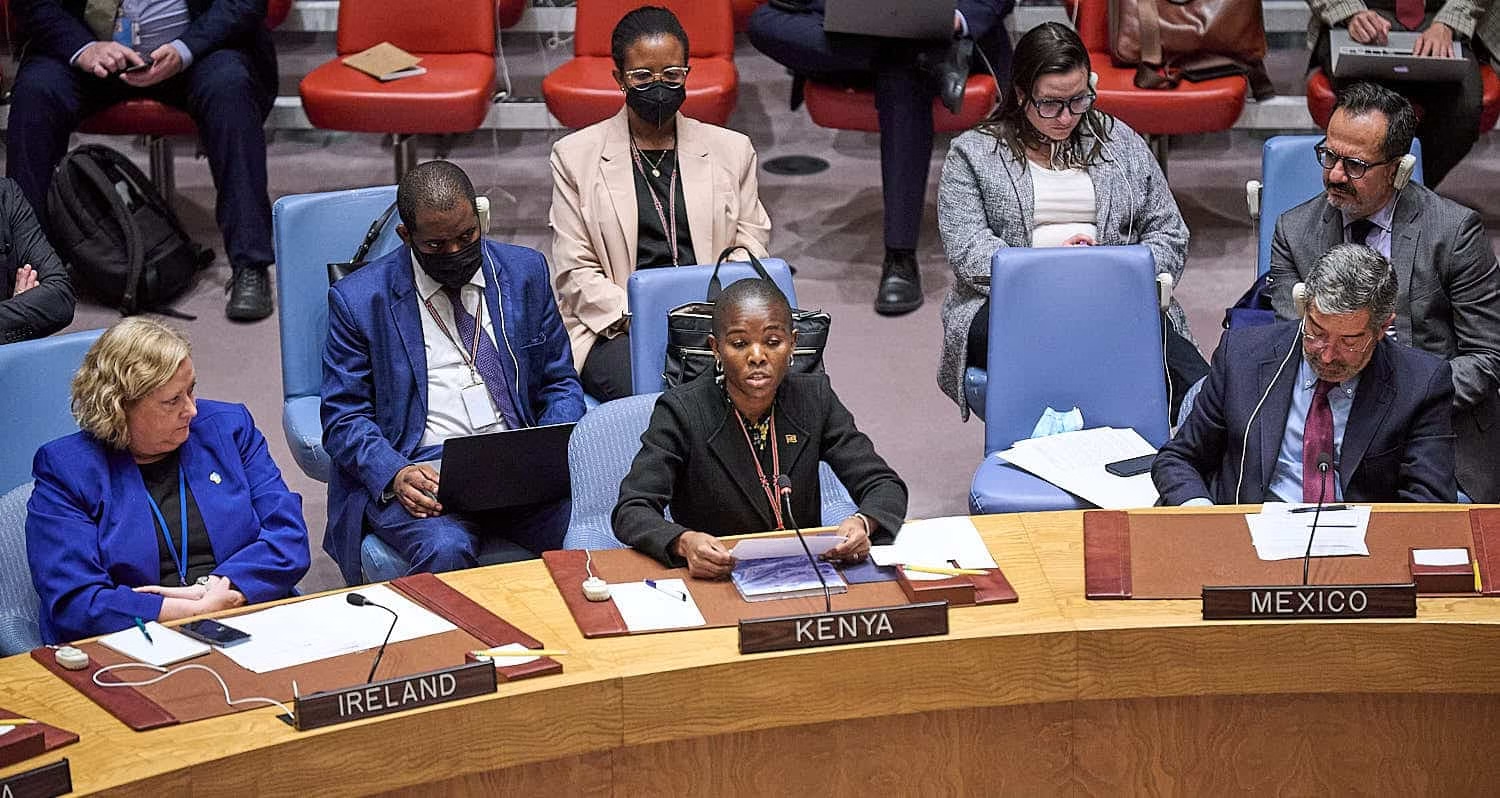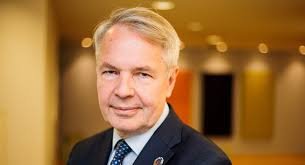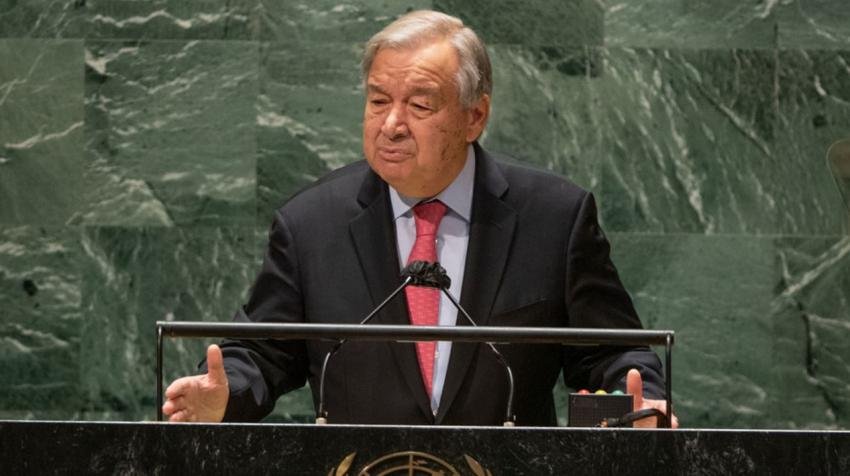
The Context and Urgent Need for Reform
The United Nations (UN), established in the aftermath of World War II, has faced significant challenges in maintaining its credibility and effectiveness over the decades. The UN Security Council (UNSC), tasked with ensuring international peace and security, has experienced a decline in public trust, exacerbated by geopolitical tensions and perceived inefficacies. As global conflicts become more complex, the rigorous response often expected from the UNSC remains elusive, leading to widespread criticism of its structure and decision-making processes.
The urgency for reforming the UNSC has gained momentum, particularly highlighted by the recent ‘UN80’ initiative, which aims to address the pressing need for an updated operational framework that reflects current global realities. Global leaders, including Germany’s Foreign Minister Annalena Baerbock, have vocalized the imperative for a more inclusive Security Council that not only represents a broader spectrum of nations but also acts decisively on critical global issues. This call for reform is not merely about expanding the Council’s membership but enhancing its accountability and responsiveness to the needs of a changing world.
Historical contexts of various UN summits and discussions reveal a collective acknowledgment of these challenges. In events such as the 75th anniversary of the UN and subsequent high-level meetings, member states have reiterated the necessity for transformation. The consideration of expanding both permanent and non-permanent membership alongside the introduction of new veto rules represents a fundamental shift aimed at fostering equitable participation among nations. Such steps aim to bridge the trust gap between member states and enhance the Council’s legitimacy in the eyes of the global population.
As the world evolves, so too must the institutions meant to serve it. Reforming the UNSC is no longer a matter of choice, but of necessity, to adapt to the demands and expectations of a diverse international community. The path toward reform promises a more accountable and credible future for the UN, capable of addressing contemporary challenges with renewed vigor and trust.
Legitimacy and Effectiveness: The Case for Reform
The legitimacy and effectiveness of the United Nations Security Council have been subjects of intense debate among member nations, with many advocating for urgent reforms. Critics of the Council often cite its outdated structure, which was conceived in the aftermath of World War II, as a primary obstacle to its effectiveness. As global dynamics evolve, the need to adapt the Security Council to represent contemporary geopolitical realities has never been more pressing. The current composition reflects a bygone era, leading to calls for diversification that would enable more inclusive decision-making, thereby enhancing the Council’s legitimacy.
One of the starkest criticisms comes from countries like Saint Vincent and the Grenadines, which emphasize that the Security Council’s structure fails to reflect the interests and voices of smaller states. In situations where significant geopolitical challenges arise, smaller nations often find their concerns marginalised, leading to perceptions of inequality within the international arena. Brazil, among other nations, advocates for permanent representation for emerging powers to ensure that a broader spectrum of viewpoints is acknowledged in the Council’s deliberations, allowing for more comprehensive approaches to conflict resolution and peacekeeping.
The paralysis experienced by the Security Council, particularly in addressing pressing threats such as armed conflicts, humanitarian crises, and environmental challenges, further underscores its diminishing effectiveness. Nations argue that timely interventions are imperative, yet the Council’s indecision often exacerbates existing issues. As the international landscape becomes increasingly complex, the necessity for a more agile and responsive Security Council is apparent. The growing array of transnational threats necessitates collaborative action, which an overhauled framework could facilitate. Enhanced diversity and representation within the Security Council promise to restore its credibility and operational capacity, making it better equipped to confront and resolve the pressing issues of the 21st century.
Diverse Perspectives on Veto Power and Representation
The veto power exercised by the five permanent members of the UN Security Council—China, France, Russia, the United Kingdom, and the United States—remains a contentious topic within international relations. Critics argue that this power significantly hampers the Council’s ability to respond effectively to mass atrocities. For instance, there have been several instances where the use of veto power has stalled necessary interventions during humanitarian crises, leading to exacerbated suffering and loss of life. Advocates for reform call for limiting or abolishing this power, contending that such measures could facilitate timely and decisive action against aggressors.
On the opposite end of the spectrum, nations like the Russian Federation defend the necessity of the veto, arguing that it serves as a critical mechanism for maintaining global stability. The ability to block resolutions is seen as a safeguard against unilateral actions that could lead to increased tensions or conflict. Proponents emphasize the importance of dialogue and negotiation among powerful states, suggesting that reforms should prioritize enhancing collaboration rather than constraining authority. This viewpoint highlights a complex interplay between national interests and global governance, further complicating the discussions surrounding necessary reforms.
Moreover, the quest for more equitable representation on the Security Council is a key aspect of reform debates. Many voices advocate for the inclusion of underrepresented regions, particularly Africa and Small Island Developing States (SIDS), arguing that their absence contributes to ongoing historical injustices within the Council’s structure. Enhancing representation is not simply about numbers but about ensuring that diverse perspectives are included in global decision-making processes. As discussions evolve, it is imperative that these varying perspectives inform future strategies to revitalize the Security Council, potentially restoring trust and effectiveness through more inclusive governance mechanisms.
The Reform Process: Challenges and Future Directions
The reform process of the United Nations Security Council has been characterized by its complexity, reflecting a tapestry of competing interests and perspectives among member states. This ongoing dialogue, primarily conducted through intergovernmental negotiations, has faced significant challenges as countries grapple with the fundamental issues of representation, accountability, and effectiveness. The need for a restructured Council that adequately represents the geopolitical realities of the 21st century remains a crucial call for many nations.
One of the primary obstacles in achieving reform is the lack of consensus on the specific changes required. Advocates for reform emphasize the importance of text-based negotiations to facilitate progress and minimize ambiguity in discussions. This method aims to transition beyond general rhetoric and focus on actionable proposals. Nonetheless, divergent views on the potential expansion of permanent and non-permanent membership complicate efforts. Countries from the Global South advocate for a more inclusive approach that gives voice to previously underrepresented nations, while others express concerns regarding over-representation and the risk of diluting the effectiveness of the Council.
Moreover, another layer of complexity arises from the geopolitical implications of reform. Major powers often display reluctance to relinquish their influence, adding to the stagnation of the reform agenda. The tension between the current structure, established post-World War II, and the push for adaptability to contemporary challenges results in a difficult balancing act. Despite the frustrations inherent in the ongoing negotiations, there remains a growing acknowledgment that any future reform must ensure a more representative and accountable council.
Looking ahead, the pathway to effective and sustainable reform is contingent upon finding common ground among member states. It will require diplomatic engagement and a commitment to fostering consensus, as well as a deeper understanding of the diverse perspectives that shape the discourse on Security Council reform. An inclusive dialogue that allows for constructive input from various nations can potentially pave the way for meaningful changes that enhance the Council’s legitimacy and operational efficiency.



